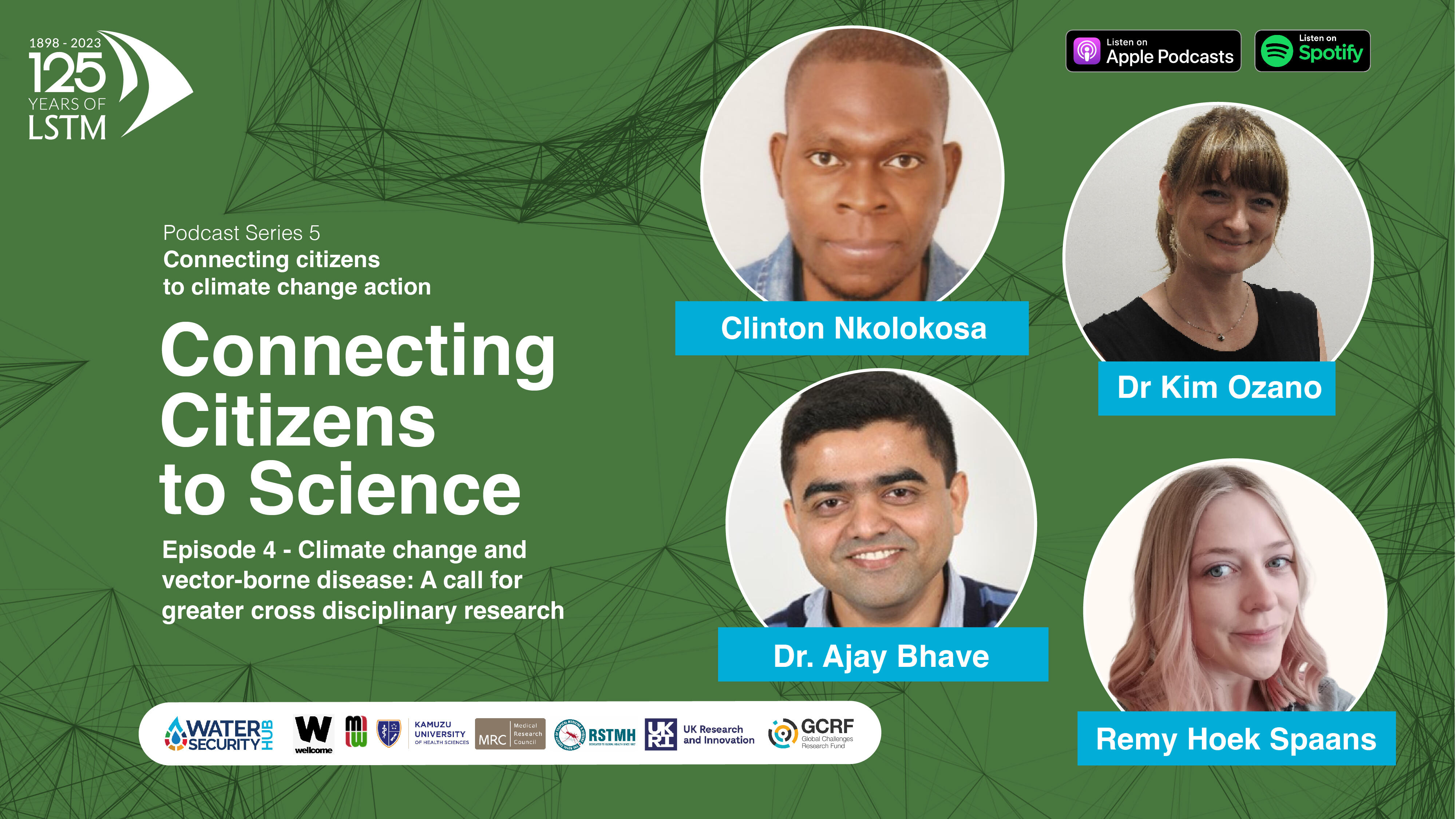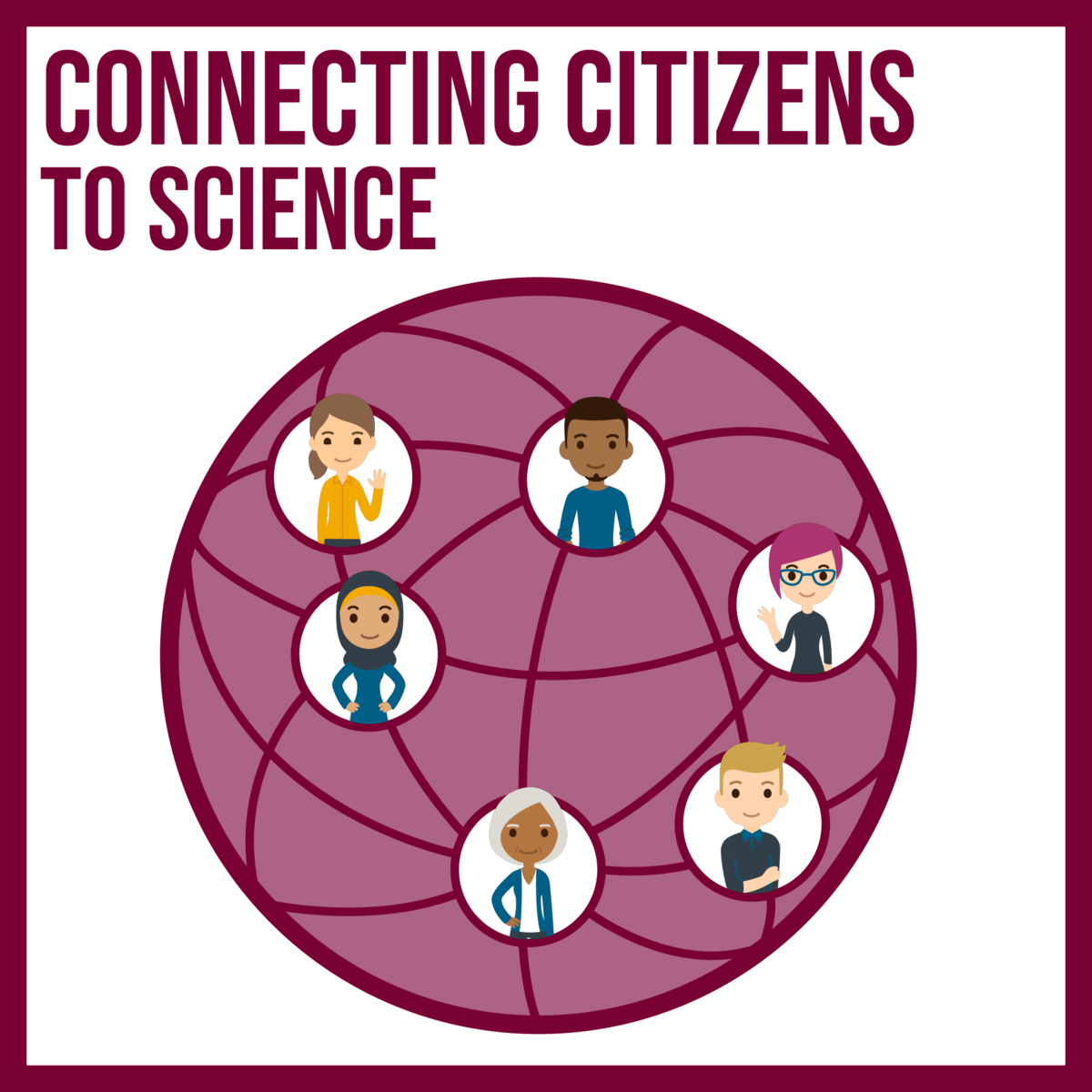
In this week’s episode we focus on climate change and its impacts on malaria specifically. Our guests Remy Hoek Spaans from the Liverpool School of Tropical Medicine and Clinton Nkolokhosa from the Malawi-Liverpool-Wellcome Trust Clinical Research Programme (MLW) will be discussing the effect of floods in Malawi created by extreme weather events and their impact on malaria. Our guests talk about:
- partnerships with local sugar producers who help to ensure accurate and timely data for factors such as soil permeability, rainfall, temperatures
- how climate knowledge combined with local knowledge can help predict patterns of disease transmission and keep track of flooding and its impacts
- the use of open access tools and humanitarian data to inform decision making and stimulate positive change for vulnerable communities and those affected by climate change
- plans to develop online intuitive tools to share knowledge and co-develop mitigation strategies to disease risk from climate change
PhD candidate, Liverpool School of Tropical Medicine
I am currently working on malaria epidemiology in Malawi, with a focus on environmental and climatological drivers. My most recent project, for which field work has just been completed, will look at the impact of flooding on malaria epidemiology. One of the first noticeable effects of climate change will be an increase in extreme weather events. In March 2019, Cyclone Idai had a devastating impact on the population of southern Malawi. I would like to understand how the spatial distribution of malaria cases has changed in response to the floods in an agricultural landscape. I have access to routinely collected daily health records and satellite imagery to investigate this at a fine scale. With an increase in extreme weather events in the future, it is crucial to learn how this will affect malaria transmission, to build resilient health systems.
https://rstmh.org/about-us/who-we-are/student-ambassadors/remy-hoek-spaans
https://twitter.com/remyhs?lang=en
https://rstmh.org/news-blog/blogs/world-malaria-day-early-career-grant-research-into-malaria
https://www.linkedin.com/in/remyhoekspaans/?originalSubdomain=nl
Mr Clinton Nkolokosa
Masters fellow, Malawi-Liverpool-Wellcome Trust Clinical Research Programme (MLW)
Clinton Nkolokosa is a MSc Fellow within the Vector Biology group at Malawi-Liverpool-Wellcome, Blantyre Malawi. Clinton’s current project which is being funded by the Wellcome Trust, is titled Measuring the impact of past, present and future environmental changes on schistosomiasis transmission in southern Malawi. Overall, his work is focuses on advanced spatial analysis in environmental and health, and in the intersection of these research areas. This includes the application of remote sensing in crisis mapping and predictive environmental modelling to uncover snail-schistosome distribution and dry season malaria transmission in a changing climate. His particular focus is using cutting-edge geospatial statistical tools to help improve capacity for prevention, preparedness and response to public health, climate and environmental risks.
- https://www.mlw.mw/student-profiles/clinton-nkolokosa-pre-msc-intern-junior-researcher/
- Environmental drivers of malaria transmission in Kasungu (https://rpubs.com/Clinty/786191)
- Impacts of climate-related disasters such as floods in lower Shire (https://arcg.is/1K5jrX0 and https://nkolokosa.shinyapps.io/FloodMapper/?_ga=2.268629302.615703065.1643593552-679779059.1640993443

This is a podcast in the series: Connecting Citizens to Science, which focuses on health research based on equitable partnerships between researchers and communities.